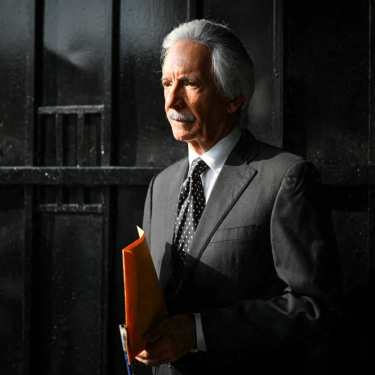Guatemala: Jose Rubén Zamora, ordered to be placed under house arrest in one of three ongoing court cases, must be released from prison

On 26 August, Guatemala's Ninth Criminal Court reaffirmed its decision to place elPeriodico newspaper publisher Jose Rubén Zamora under house arrest, after his detention for more than 760 days in inhuman conditions. Despite this ruling, the two other ongoing cases against him mean that he may not actually be released. Reporters Without Borders (RSF) welcomes the latest decision, but calls on the courts to proceed with hearings in the two other cases without delay, to allow Zamora to defend himself in freedom.
At a hearing on 26 August, the judges of Guatemala's Ninth Criminal Court unanimously decided that the provisional detention of journalist Jose Rubén Zamora in a case of alleged money laundering was unnecessary and could be replaced by other measures, namely house arrest.
However, the elPeriodico founder remains imprisoned for the time being until hearings in two other cases against him progress: one for alleged obstruction of justice, and the other for alleged falsification of signatures on immigration control documents.
“We welcome the judges’ decision to reaffirm Jose Rubén Zamora’s release to house arrest. This decision confirms what has always been clear: there is no reason to keep the journalist in prison. However, Zamora has been arbitrarily detained for more than two years, while his trial has been plagued by obstacles and delays. It is imperative that the Guatemalan judiciary urgently bring forward the hearings in the other cases, so that Zamora can defend himself in complete freedom without further delay."
The court's decision states that “the information presented by the prosecutor's office is merely generic assertions without factual support” and that there was no risk of Zamora's absconding or obstructing justice. The court decided that Zamora should be placed under house arrest at his home, with an obligation to report to the public prosecutor every 15 days, and a ban on leaving the country without authorisation.
Hearings in the various cases have been inexplicably postponed at least six times in recent months. At the latest hearing on 26 August, the Office of the Special Prosecutor against Impunity (FECI) and the Foundation against Terrorism did not send representatives to court, in a further attempt to delay alternative measures for Zamora. However, the presiding judge maintained the hearing and criticised the prosecutor's delay tactics. "It's a lack of responsibility not to be diligent about court appeals. This is not acceptable. We will be sending official information to the Attorney General's Office so that it can take appropriate action regarding the fact that the FECI did not attend a hearing for which it had been duly summoned,” said the president of the tribunal, Veronica Ruiz.
Concerns about Zamora's detention conditions
On 28 August, a group of United Nations Special Rapporteurs also called on the Guatemalan authorities to respond urgently to the allegations of inhuman conditions of detention of Jose Rubén Zamora, which could amount to torture and put his life in danger. They said they were ‘gravely concerned’ that Zamora ‘has not received appropriate medical treatment for his physical and mental condition, which is endangering his life’. The experts also expressed concern about alleged violations of his right to due process and reported irregularities in the judicial proceedings.
At a meeting at the end of July, Guatemalan President Bernardo Arévalo acknowledged to RSF and the journalist's son, José Carlos Zamora, the arbitrary nature of Jose Rubén Zamora's detention and reaffirmed his commitment to do everything in his power to obtain his release.
Guatemala is ranked 138th out of 180 countries in RSF's World Press Freedom Index for 2024.
